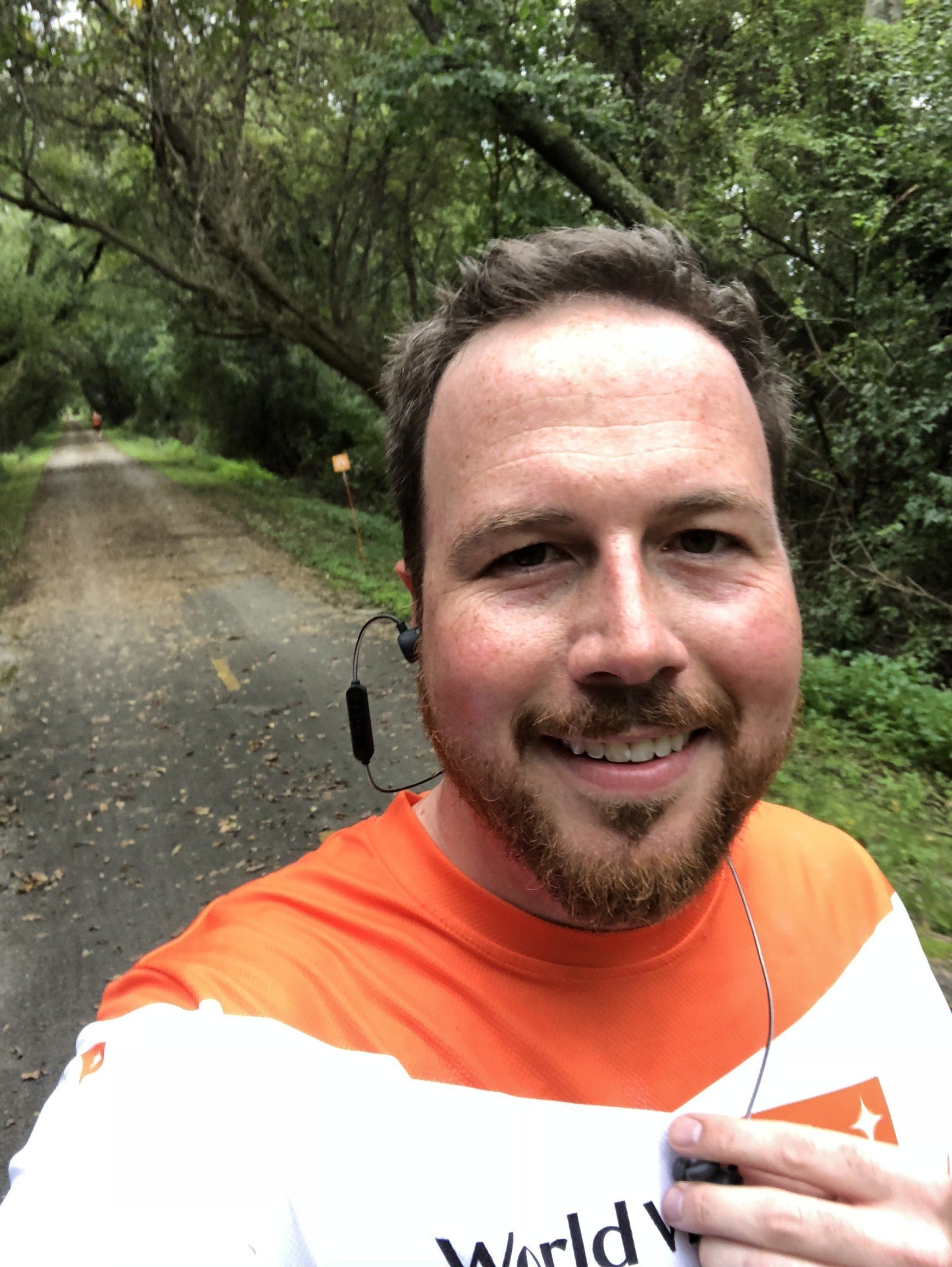What Happens If You are Charged with DUI?
- By 7021257509
- •
- 24 Oct, 2018
- •
A New Client's Guide for Navigating the DUI Process

If you have recently been charged with a DUI in Rockford or one of its surrounding communities, you probably have a lot of questions. The good news is there is someone here in the community that you can count on--call Attorney Joshua C. Smith today! The first thing that you are likely to wonder about is "what will happen to my driver's license?" If the officer who arrested you served you with a paper called the "Notice of Summary Suspension" (a.k.a. "Law Enforcement Sworn Report"), this is the document that the State of Illinois will be using to try to take away your driving privileges. As that document indicates, the license suspension will be scheduled to take effect 46 days following your arrest. However, the law allows you an opportunity, through your attorney, to challenge this suspension and ask the court to stop it by filing a petition to rescind the suspension. There is only a limited window of time within which to file this petition, so you must act promptly. I have handled hundreds of DUI cases and, in many of them, succeeded in having suspensions removed from my clients' driving records. The bases for removal can be complex and are beyond the scope of this post. But here are a few examples:
(1) The officer may have lacked a valid basis for stopping your vehicle
(2) The officer may have had insufficient reason to believe that you were impaired by alcohol or another substance while operating a vehicle on a public roadway
(3) The officer may have failed to properly advise you of the consequences of taking or declining a chemical test
(4) The officer may have failed to properly serve you with the notice of suspension or his sworn report may have been legally defective
(5) You may not have, in fact, refused to submit to chemical testing or the chemical tests to which you submitted may have been unreliable in some way
Suffice it to say I am very well versed in the law in this area and can put my knowledge to work for you.
(1) The officer may have lacked a valid basis for stopping your vehicle
(2) The officer may have had insufficient reason to believe that you were impaired by alcohol or another substance while operating a vehicle on a public roadway
(3) The officer may have failed to properly advise you of the consequences of taking or declining a chemical test
(4) The officer may have failed to properly serve you with the notice of suspension or his sworn report may have been legally defective
(5) You may not have, in fact, refused to submit to chemical testing or the chemical tests to which you submitted may have been unreliable in some way
Suffice it to say I am very well versed in the law in this area and can put my knowledge to work for you.

Question 1
: Do I need a private lawyer or should I go with a public defender?
Answer : You definitely need a dedicated legal advocate to assist you in the handling of your DUI case. Public defenders are often overburdened with cases and do not have the ability to provide you with the personalized attention that your case requires. Perhaps the most important factor is that a public defender does not have the authority to file a petition to rescind the suspension of your driving privileges. What this means is that you would have no way to contest the validity of a license suspension unless you hire your own attorney to help you.
Question 2 : What is going to happen to my driving privileges?
Answer : Most likely the arresting officer gave you a document called the "Notice of Summary Suspension" (a.k.a. "Law Enforcement Sworn Report") and this document indicates that your driving privileges will be suspended on the 46th day following your arrest. This means that you generally have only about six (6) weeks to challenge that suspension before it goes into effect and prohibits you from driving.
Question 3 : How long will my suspension be?
Answer : The length of a license suspension depends on whether you qualify as a "first offender" under Illinois law and whether you submitted to, or declined to submit to, chemical testing. Under the law as it exists today, the length of your suspension could be as short as six (6) months or as long as three (3) years. We will discuss this further when you come in to see me for your free initial consultation.
Question 4 : How do I know whether or not I am considered a "first offender"?
Answer : Illinois law has a special definition for the phrase "first offender." Although this may mean that you have never before been charged with a DUI during your lifetime, the particular meaning of this phrase is narrower. What it essentially means is that the person has not had a prior DUI charge within the past 5 years.
Question 5 : If I cannot get my license suspension thrown out of court, am I eligible for a driving permit?
Answer : Yes. If you are a first-offender, you are eligible under Illinois law to opt in to the monitoring device driving permit program ("MDDP"). Once you have consented to the program and paid the appropriate fees, you will be allowed to drive at any time and for any reason provided that you have a breathalzyer device in your car and can pass the breath test.
Question 6 : What is a "judicial driving permit"?
Answer : The "Judicial Driving Permit" or "JDP" was abolished in 2008 and, therefore, is no longer a valid option in Illinois. It was replaced by the MDDP in 2009.
Question 7 : Is my license going to be revoked?
Answer : Illinois law provides that even one conviction for DUI-- in a lifetime --will result in a license revocation. If your license is revoked, the loss of driving privileges is indefinite and could be permanent if you do not take the steps necessary to fix it and get it back. However, there are many things that a good attorney can do to prevent a DUI conviction from going into effect or to assist you in obtaining reinstatement of privileges once the revocation has been imposed. In some circumstances, such as if you were involved in an accident where someone got hurt, a license can be revoked even before the case goes to court for litigation. This is called a statutory summary revocation.
Question 8 : Can an attorney really stop my license from being suspended or revoked?
Answer : Yes! Illinois law provides a number of reasons why a suspension of driving privileges might be improper and a good attorney can help you to spot these important issues.
Question 9 : What are some of the ways a suspension can be challenged?
Answer :
(1) The officer may have lacked a valid basis for stopping your vehicle. The officer needed to have--at least--a reasonable suspicion of illegal activity in order to pull you over.
(2) The officer may have had insufficient reason to believe that you were impaired by alcohol or another substance while operating a vehicle on a public roadway. The officer needed to have probable cause to believe that you were impaired to a point of being unsafe to drive and that you were driving on something other than private property.
(3) The officer may have failed to properly advise you of the consequences of taking or declining a chemical test. The law requires that an officer read you a Warning to Motorist form and he must give you an opportunity to sign the form, if you are able, to acknowledge receipt of the warning.
(4) The officer may have failed to properly serve you with the notice of suspension or his sworn report may have been legally defective. The officer is required to serve you with the notice and to properly document all of the information in his report. The report must then be sent to the Secretary of State and to the court.
(5) You may not have, in fact, refused to submit to chemical testing or the chemical tests to which you submitted may have been unreliable in some way. Some motorists make their genuine best-attempt to submit to testing and are unable to succeed in doing so.
(6) Once your attorney files your petition to rescind the suspension, the State is required to provide you with a hearing within 30 days or the suspension may be rescinded based on the lack of a timely hearing.
Question 10 : What if I was not driving?
Answer : The grasp of Illinois' DUI law is broader than you might suspect. Even though most assume driving is essential to it, a person can be charged--and found guilty--even in the absence of proof of driving. This is called a DUI based on "actual physical control." The easiest way to explain this is that the person is there, in the vehicle with a set of keys, and in a position to start the car and cause it to move.
Question 11 : What sorts of chemical tests can I be required to submit to?
Answer : The so-called "Implied Consent Law" is designed to induce motorists to submit to chemical testing so that they will be easier to prosecute and so that the State will be able to obtain more convictions. So the short answer is that you cannot be forced to submit to any sort of chemical testing. If you did choose to decline to submit to chemical testing, you would have to be prepared to face the consequences. This means your suspension time may be doubled or even tripled. In terms of the types of tests you might be asked to take, usually an officer will demand breath only. In some cases, such as when a drug-influence is suspected, you may be asked for urine or even blood. Unfortunately, the courts have indicated that the officer needs only to have a reasonable belief that you are impaired in order to demand any or all of these biological samples.
Question 12 : Does an officer need to have a warrant to take my blood?
Answer : According to the United States Supreme Court, he does. In Missouri v. McNeely , the Court held that a warrant is generally required before a motorist can be compelled to submit to an extraction of his blood. If the officer proceeds without a warrant, the State bears the burden of establishing that there were exigent circumstances excusing the officer's failure to secure a search warrant. On the other hand, if the motorist consented to having his blood taken--even if he simply did not know that he had the right to say no--then a warrant is not required and the taking of the blood without one does not offend the constitution.
Question 13 : What if the officer did not read me my Miranda rights?
Answer : In 1966, the United States Supreme Court held, in Miranda v. Arizona , that the 5th amendment privilege against self-incrimination required that police officers tell each suspect of his rights to remain silent and to have an attorney present during questioning before they could begin an interrogation. If you were in police custody and were induced to make incriminating statements by law enforcement, those statements may not be used against you unless you received proper Miranda warnings first and you waived those rights. So the officer's failure to read you your rights would only be significant if you were led to make incriminating statements about your case. For example, if the officer placed you in handcuffs and put you in the back of his squad car and then proceeded to ask you how much you had to drink without first Mirandizing you, those statements would likely be subject to suppression and not usable against you in court.
Question 14 : What if I am a CDL-holder and charged with a DUI?
Answer : the State of Illinois will definitely try to take your CDL privileges away from you (this is called a "CDL Disqualification") and this is true even if you were driving a personal vehicle (and off-the-clock) at the time of the DUI. The unfortunate fact is that CDL holders are held to a different standard, even if they always exercise caution and good judgment when operating commercial vehicles during work hours. There are some things to bear in mind: just being charged with a DUI and receiving a summary suspension will result in a disqualification of your CDL. Obtaining relief from a summary suspension will give you some breathing room, but you will still also have another hurdle to surmount down the line when it comes to the final disposition of the DUI. You will need to have a dismissal, an acquittal, or an amendment in order to preserve the CDL. But do not lose hope; I have had success in the past at doing just this for my CDL clients.
Question 15 : What if I am charged with a felony DUI?
Answer : there are many ways under Illinois law for a DUI to be enhanced to a felony. The most common is what they call the recidivism enhancement, which is for people with two or more prior DUI adjudications. Additional ways to be charged with a felony arise when the motorist did not have valid driving privileges at the time of the DUI or if he lacked vehicle liability insurance. Another way that a felony can be charged is if the DUI resulted in personal injury/bodily harm or death to another person. I have dealt with all of these scenarios before and I wish you to be assured that there is no circumstance that is hopeless. If you are charged with a felony, this increases your risk of jail time or long-term loss of driving privileges. Do not despair, call me for your free initial consultation and we will have a candid discussion about the matter.
Question 16 : What if I have been charged with a DUI and I live out-of-state, what do I do?
Answer : being licensed in another State presents a unique set of legal issues. Most states do not seem to recognize a disposition of court supervision, such as may be available for you here in Illinois. That being the case, it is likely that a guilty plea here in Illinois would lead to the revocation of your driving privileges in your home state. I have had success in the past negotiating for lesser dispositions in order to help my out-of-state clients preserve their driver's licenses. In fact, we may be able to resolve your case favorably with little or no court appearances, subject to the approval of the presiding judge. If the case cannot be resolved favorably, you would likely need to consult with a lawyer that understands DUI/driver's licensing law in your home state.
Question 17 : What if I am not a citizen of the United States, what will happen if I am charged with a DUI?
Answer : for a more detailed discussion of this issue, you will likely need to consult an immigration attorney. However, Illinois has extended relief to undocumented persons through a program called the "temporary visitor's driver's license" or "TVDL" program. This enables non-citizens to obtain driving privileges so long as they can establish Illinois residency. If you are charged with a DUI and you have no driving privileges due to noncitizenship, there are still options that can be exercised to avoid the harsh impact of a conviction going against your record. If you have a TVDL or are able to obtain one, then you will also be eligible for an MDDP/Restricted Driving Permit
Question 18 : What is a restricted driving permit ("RDP")?
Answer : a permit to drive is called "restricted" if it enables the person to drive for limited purposes during an otherwise valid period of suspension or revocation of privileges. For example, even if you are revoked for a DUI, you may be eligible for an RDP to relieve undue hardship to your or those that depend on you. An RDP can only be granted after a hearing before a Secretary of State hearing officer and it normally requires a breathalyzer in the vehicle. Even when RDP relief is granted, the permittee is only allowed to drive for certain limited purposes such as work, school, medical or recovery programs.
Question 19 : What is a "zero tolerance" suspension?
Answer : A zero tolerance suspension only applies to motorists who are under 21 years of age and who consume alcohol prior to driving. If a police officer suspects that an underage motorist has been drinking, he will request that you submit to a breathalyzer and your driving privileges will likely be suspended for up to six (6) months unless that suspension can be successfully addressed.
Question 20 : Can I be charged with a DUI for being under the influence of a substance other than alcohol?
Answer : Yes. In Illinois, a motorist can be charged with DUI practically any time an officer believes that he has ingested an impairing substance. This includes prescription drugs, cannabis and street substances. Even if a motorist holds a valid prescription to use cannabis or a controlled substance, he is still legally prohibited from driving in an impaired state. As explained above, the officer will likely request that you submit to a chemical analysis of your blood or your urine. The results of this analysis, such as whether any illegal or controlled substance was detected and what the concentration of that substance was, will affect whether or not the prosecutor chooses to proceed in charging or prosecuting you as well as the issue of whether or not your license will be suspended.
Answer : You definitely need a dedicated legal advocate to assist you in the handling of your DUI case. Public defenders are often overburdened with cases and do not have the ability to provide you with the personalized attention that your case requires. Perhaps the most important factor is that a public defender does not have the authority to file a petition to rescind the suspension of your driving privileges. What this means is that you would have no way to contest the validity of a license suspension unless you hire your own attorney to help you.
Question 2 : What is going to happen to my driving privileges?
Answer : Most likely the arresting officer gave you a document called the "Notice of Summary Suspension" (a.k.a. "Law Enforcement Sworn Report") and this document indicates that your driving privileges will be suspended on the 46th day following your arrest. This means that you generally have only about six (6) weeks to challenge that suspension before it goes into effect and prohibits you from driving.
Question 3 : How long will my suspension be?
Answer : The length of a license suspension depends on whether you qualify as a "first offender" under Illinois law and whether you submitted to, or declined to submit to, chemical testing. Under the law as it exists today, the length of your suspension could be as short as six (6) months or as long as three (3) years. We will discuss this further when you come in to see me for your free initial consultation.
Question 4 : How do I know whether or not I am considered a "first offender"?
Answer : Illinois law has a special definition for the phrase "first offender." Although this may mean that you have never before been charged with a DUI during your lifetime, the particular meaning of this phrase is narrower. What it essentially means is that the person has not had a prior DUI charge within the past 5 years.
Question 5 : If I cannot get my license suspension thrown out of court, am I eligible for a driving permit?
Answer : Yes. If you are a first-offender, you are eligible under Illinois law to opt in to the monitoring device driving permit program ("MDDP"). Once you have consented to the program and paid the appropriate fees, you will be allowed to drive at any time and for any reason provided that you have a breathalzyer device in your car and can pass the breath test.
Question 6 : What is a "judicial driving permit"?
Answer : The "Judicial Driving Permit" or "JDP" was abolished in 2008 and, therefore, is no longer a valid option in Illinois. It was replaced by the MDDP in 2009.
Question 7 : Is my license going to be revoked?
Answer : Illinois law provides that even one conviction for DUI-- in a lifetime --will result in a license revocation. If your license is revoked, the loss of driving privileges is indefinite and could be permanent if you do not take the steps necessary to fix it and get it back. However, there are many things that a good attorney can do to prevent a DUI conviction from going into effect or to assist you in obtaining reinstatement of privileges once the revocation has been imposed. In some circumstances, such as if you were involved in an accident where someone got hurt, a license can be revoked even before the case goes to court for litigation. This is called a statutory summary revocation.
Question 8 : Can an attorney really stop my license from being suspended or revoked?
Answer : Yes! Illinois law provides a number of reasons why a suspension of driving privileges might be improper and a good attorney can help you to spot these important issues.
Question 9 : What are some of the ways a suspension can be challenged?
Answer :
(1) The officer may have lacked a valid basis for stopping your vehicle. The officer needed to have--at least--a reasonable suspicion of illegal activity in order to pull you over.
(2) The officer may have had insufficient reason to believe that you were impaired by alcohol or another substance while operating a vehicle on a public roadway. The officer needed to have probable cause to believe that you were impaired to a point of being unsafe to drive and that you were driving on something other than private property.
(3) The officer may have failed to properly advise you of the consequences of taking or declining a chemical test. The law requires that an officer read you a Warning to Motorist form and he must give you an opportunity to sign the form, if you are able, to acknowledge receipt of the warning.
(4) The officer may have failed to properly serve you with the notice of suspension or his sworn report may have been legally defective. The officer is required to serve you with the notice and to properly document all of the information in his report. The report must then be sent to the Secretary of State and to the court.
(5) You may not have, in fact, refused to submit to chemical testing or the chemical tests to which you submitted may have been unreliable in some way. Some motorists make their genuine best-attempt to submit to testing and are unable to succeed in doing so.
(6) Once your attorney files your petition to rescind the suspension, the State is required to provide you with a hearing within 30 days or the suspension may be rescinded based on the lack of a timely hearing.
Question 10 : What if I was not driving?
Answer : The grasp of Illinois' DUI law is broader than you might suspect. Even though most assume driving is essential to it, a person can be charged--and found guilty--even in the absence of proof of driving. This is called a DUI based on "actual physical control." The easiest way to explain this is that the person is there, in the vehicle with a set of keys, and in a position to start the car and cause it to move.
Question 11 : What sorts of chemical tests can I be required to submit to?
Answer : The so-called "Implied Consent Law" is designed to induce motorists to submit to chemical testing so that they will be easier to prosecute and so that the State will be able to obtain more convictions. So the short answer is that you cannot be forced to submit to any sort of chemical testing. If you did choose to decline to submit to chemical testing, you would have to be prepared to face the consequences. This means your suspension time may be doubled or even tripled. In terms of the types of tests you might be asked to take, usually an officer will demand breath only. In some cases, such as when a drug-influence is suspected, you may be asked for urine or even blood. Unfortunately, the courts have indicated that the officer needs only to have a reasonable belief that you are impaired in order to demand any or all of these biological samples.
Question 12 : Does an officer need to have a warrant to take my blood?
Answer : According to the United States Supreme Court, he does. In Missouri v. McNeely , the Court held that a warrant is generally required before a motorist can be compelled to submit to an extraction of his blood. If the officer proceeds without a warrant, the State bears the burden of establishing that there were exigent circumstances excusing the officer's failure to secure a search warrant. On the other hand, if the motorist consented to having his blood taken--even if he simply did not know that he had the right to say no--then a warrant is not required and the taking of the blood without one does not offend the constitution.
Question 13 : What if the officer did not read me my Miranda rights?
Answer : In 1966, the United States Supreme Court held, in Miranda v. Arizona , that the 5th amendment privilege against self-incrimination required that police officers tell each suspect of his rights to remain silent and to have an attorney present during questioning before they could begin an interrogation. If you were in police custody and were induced to make incriminating statements by law enforcement, those statements may not be used against you unless you received proper Miranda warnings first and you waived those rights. So the officer's failure to read you your rights would only be significant if you were led to make incriminating statements about your case. For example, if the officer placed you in handcuffs and put you in the back of his squad car and then proceeded to ask you how much you had to drink without first Mirandizing you, those statements would likely be subject to suppression and not usable against you in court.
Question 14 : What if I am a CDL-holder and charged with a DUI?
Answer : the State of Illinois will definitely try to take your CDL privileges away from you (this is called a "CDL Disqualification") and this is true even if you were driving a personal vehicle (and off-the-clock) at the time of the DUI. The unfortunate fact is that CDL holders are held to a different standard, even if they always exercise caution and good judgment when operating commercial vehicles during work hours. There are some things to bear in mind: just being charged with a DUI and receiving a summary suspension will result in a disqualification of your CDL. Obtaining relief from a summary suspension will give you some breathing room, but you will still also have another hurdle to surmount down the line when it comes to the final disposition of the DUI. You will need to have a dismissal, an acquittal, or an amendment in order to preserve the CDL. But do not lose hope; I have had success in the past at doing just this for my CDL clients.
Question 15 : What if I am charged with a felony DUI?
Answer : there are many ways under Illinois law for a DUI to be enhanced to a felony. The most common is what they call the recidivism enhancement, which is for people with two or more prior DUI adjudications. Additional ways to be charged with a felony arise when the motorist did not have valid driving privileges at the time of the DUI or if he lacked vehicle liability insurance. Another way that a felony can be charged is if the DUI resulted in personal injury/bodily harm or death to another person. I have dealt with all of these scenarios before and I wish you to be assured that there is no circumstance that is hopeless. If you are charged with a felony, this increases your risk of jail time or long-term loss of driving privileges. Do not despair, call me for your free initial consultation and we will have a candid discussion about the matter.
Question 16 : What if I have been charged with a DUI and I live out-of-state, what do I do?
Answer : being licensed in another State presents a unique set of legal issues. Most states do not seem to recognize a disposition of court supervision, such as may be available for you here in Illinois. That being the case, it is likely that a guilty plea here in Illinois would lead to the revocation of your driving privileges in your home state. I have had success in the past negotiating for lesser dispositions in order to help my out-of-state clients preserve their driver's licenses. In fact, we may be able to resolve your case favorably with little or no court appearances, subject to the approval of the presiding judge. If the case cannot be resolved favorably, you would likely need to consult with a lawyer that understands DUI/driver's licensing law in your home state.
Question 17 : What if I am not a citizen of the United States, what will happen if I am charged with a DUI?
Answer : for a more detailed discussion of this issue, you will likely need to consult an immigration attorney. However, Illinois has extended relief to undocumented persons through a program called the "temporary visitor's driver's license" or "TVDL" program. This enables non-citizens to obtain driving privileges so long as they can establish Illinois residency. If you are charged with a DUI and you have no driving privileges due to noncitizenship, there are still options that can be exercised to avoid the harsh impact of a conviction going against your record. If you have a TVDL or are able to obtain one, then you will also be eligible for an MDDP/Restricted Driving Permit
Question 18 : What is a restricted driving permit ("RDP")?
Answer : a permit to drive is called "restricted" if it enables the person to drive for limited purposes during an otherwise valid period of suspension or revocation of privileges. For example, even if you are revoked for a DUI, you may be eligible for an RDP to relieve undue hardship to your or those that depend on you. An RDP can only be granted after a hearing before a Secretary of State hearing officer and it normally requires a breathalyzer in the vehicle. Even when RDP relief is granted, the permittee is only allowed to drive for certain limited purposes such as work, school, medical or recovery programs.
Question 19 : What is a "zero tolerance" suspension?
Answer : A zero tolerance suspension only applies to motorists who are under 21 years of age and who consume alcohol prior to driving. If a police officer suspects that an underage motorist has been drinking, he will request that you submit to a breathalyzer and your driving privileges will likely be suspended for up to six (6) months unless that suspension can be successfully addressed.
Question 20 : Can I be charged with a DUI for being under the influence of a substance other than alcohol?
Answer : Yes. In Illinois, a motorist can be charged with DUI practically any time an officer believes that he has ingested an impairing substance. This includes prescription drugs, cannabis and street substances. Even if a motorist holds a valid prescription to use cannabis or a controlled substance, he is still legally prohibited from driving in an impaired state. As explained above, the officer will likely request that you submit to a chemical analysis of your blood or your urine. The results of this analysis, such as whether any illegal or controlled substance was detected and what the concentration of that substance was, will affect whether or not the prosecutor chooses to proceed in charging or prosecuting you as well as the issue of whether or not your license will be suspended.

Sometime in the middle of March of 2018, a man by the name of Pastor Steve Spear came to our church (Heartland Community of Rockford) and invited us on an incredible journey. Mr. Spear himself explained that he had done a "Forrest Gump" a few years earlier. That is to say, he ran from coast-to-coast, from L.A. to N.Y. over a period of about 4 months. In the process, he raised over half a million dollars in sponsorship funds for Team World Vision, a humanitarian organization dedicated to bringing relief to the beleaguered communities of the world. He asked us to join them by agreeing to run in the Chicago Marathon in October. Clearly, if I had had some timeOur principal goal would be to raise money for clean drinking water for Africa. Despite my reservations and fears, I was moved to agree to become a part of this vision. I spent the ensuing 6 and 1/2 months training for the Big Run. I ran four times per week over the span of nearly 30 weeks and put approximately 500 miles on these feet which had never done more than 2-3 miles at once in a lifetime of 36 + years. By God's grace everything held together. It was extremely trying to have a fairly rigorous training schedule to follow, along with a wife who had just made the decision to stay at home with our infant son, Henry. Even now, he has not yet reached the age of 5 months. But we were faithful and nearly all of the Team World Vision runners made it to the finish line. I was in terrible pain for about the last 8 miles of the journey. My running mate and I could no longer even jog without great discomfort past about mile 18. So we walked for the majority of those last miles, saving our strength for the final push to the finish line. Although the experience was far from glamorous, I'm very glad that I set the goal and completed it. Not just for myself (and hopefully a few boosts in health and wellness) but for all those folks overseas whose lives may be touched by our efforts. I even decided to take on a sponsor child named Never. Well Never say "Never," because I believe God can use even the most unlikely of us to do valuable things in His name. That was the reason why I agreed to run: I wanted to make sure that the children in Africa had a better chance to grow up drinking clean water like our little Henry.




Share On: